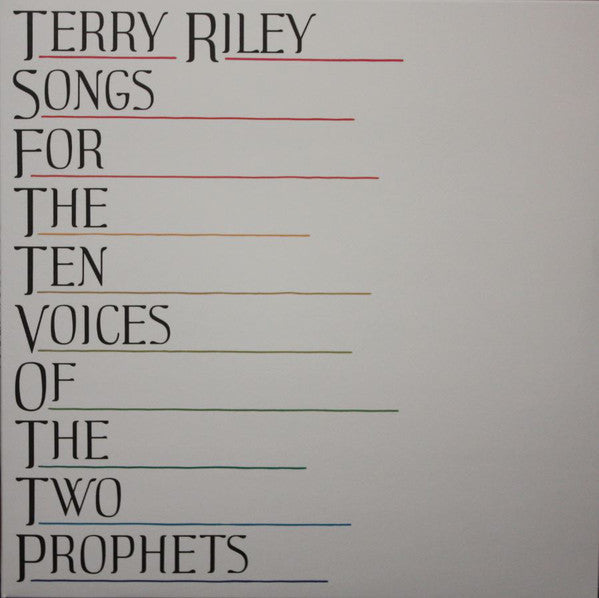1
/
of
1
RILEY, TERRY - Songs For The Ten Voices Of The Two Prophets
Regular price
$18.00 USD
Regular price
Sale price
$18.00 USD
Quantity
Couldn't load pickup availability
Beacon Sound present a reissue of Terry Rileys Songs For The Ten Voices Of The Two Prophets, originally released in 1983. Recorded live in Munich in 1982 using two Prophet synthesizers and voice, this album is a reflection of Rileys ongoing interest in melding improvisation, electronic music, and the raga vocal stylings of his mentor, Pandit Pran Nath. Terry Riley turned the music world upside down with his 1964 work In C, a revolutionary concept based on 53 modules that can be improvised upon by any number of musicians for an indeterminate amount of time over a pulsing C note typically played on piano or mallet. Performed live for the first time by Steve Reich, Pauline Oliveros, Morton Subotnik, and Jon Gibson, it has since been performed by everyone from the Shanghai Film Orchestra, Adrian Utley of Portishead, and the Malian musicians of Africa Express (featuring contributions by Brian Eno and Damon Albarn). Though referred to as the father of minimalism", the 81-year-old Riley has ranged widely in the intervening decades, deeply influenced by jazz, North Indian classical music, and a distinctly West Coast strain of radical spirituality - and in turn influencing practically everyone: The Who ("Baba ORiley"), The Velvet Underground, collaborators The Kronos Quartet, as well as the legions of cutting-edge electronic musicians and contemporary composers making genre-defying music today. A resident of Grass Valley, CA, Riley is still touring the world. Remastered by Raphael Anton Irisarri" - Beacon Sound. "His voice twists and curves in complicated arabesques, recalling Indian music, and especially the singing of Mr. Rileys colleague and teacher, Pandit Pran Nath, who is also associated with Mr. Rileys long-time friend LaMonte Young. The synthesizers create a hushed, meditative counterpoint of slowly unwinding melodies and cross-rhythms... the Prophet 5, a polyphonic synthesizer that is capable of rich viola-like sounds, is a winning instrument for Mr. Rileys improvisations. After years of playing a Yamaha electric organ, he has turned to the synthesizer, which theoretically offers an infinite assortment of sounds. Rather than take advantage of the instruments ability to mimic vocal sounds and timbres, as composers like Jon Hassel and Brian Eno have done, Mr. Riley plays the synthesizer as a keyboard instrument, with a luminous sound and the ability to bend or inflect notes." - New York Times, Feb 1984. Includes original insert; Edition of 300.
View full details


